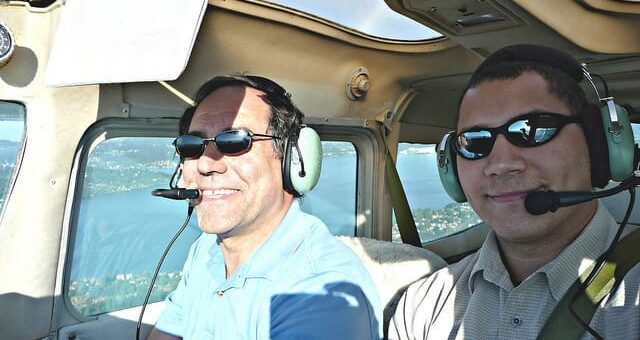
The Importance of an Aviation Mentor
80% of students who begin flight training drop out/quit before earning their Private Pilots Certificate.
Few endeavors can thrive with a failure rate this high, apart from Navy Seal Training, which often suffers a higher dropout rate. There are many reasons for this dismal record; lack of a training structure, poor instruction, money, not realizing the amount of work required, failure to focus on the tasks necessary, airsickness, or other medical issues. Most people who aspire to become a pilot don’t come from a family of pilots. They really need a mentor to guide them through the process.
In theory, flight schools should be offering mentoring with their flight training. Unfortunately, this is typically not the case. Flight instructors are learning to teach and balance their schedules, students, and planes. Often flight instruction is used to build flight time so that instructors can move up the aviation career ladder. Realize a flight school is a small business that must generate a profit to keep the lights on.
So where do you find these mentors?
- Retired pilot community
- EAA Chapters
- Local Flying Clubs
- Become an “airport bum” and find a pilot who loves to talk about flying; they’re a plentiful flock.
- If you stumble upon an aviation “bull session,” sit in with your eyes and ears open.
What should a mentor share?
- Their love for flying. This will be self-evident when they speak.
- A Discovery Flight to see if flying is what the student thought it was.
- They encourage the student to study and pass the Private Pilot Knowledge Test before starting their flight lessons. The self-study course will be fundamental to the success of the rest of their training.
- Inform & encourage the student to fly as often as possible.
- Provide insight to the student regarding the time demands on their schedule. The more persistence the student exercises toward their training, the faster they reach their goals.
- Their time, their knowledge, and their expertise.
Aviation industry organizations such as the National Business Aviation Association (NBAA) offer a Mentoring network that fosters a collaborative environment for professional growth. Participants are matched based on location, industry objectives, and other factors to provide an engaging and fulfilling experience. The American Association of Airport Executives (AAAE) also fosters mentorship and has a community for young professionals to network.
Editorial by Spencer Mamber